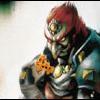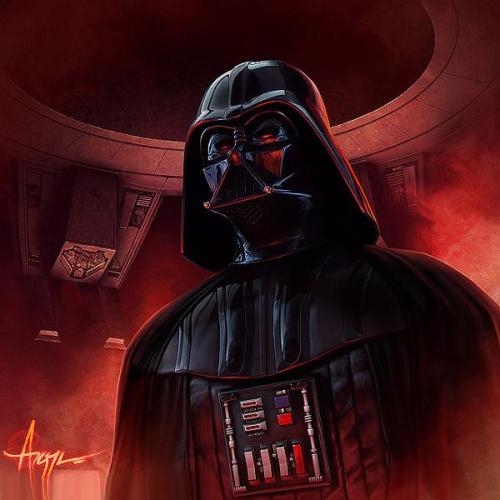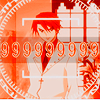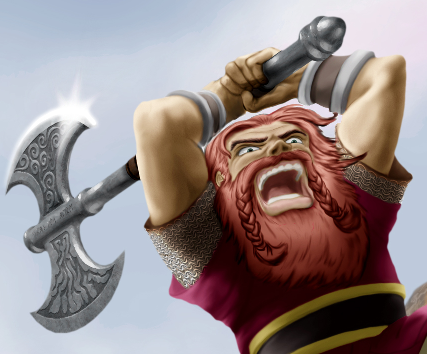
The Legend Theory
#1

Posted 26 September 2009 - 04:10 PM
Clearly direct sequels/prequels to Ganon games that don't feature Ganon themselves are excluded, as they have nothing to do with the main, overall storyline; the clash between good and evil, Link and Ganon. Thus, my exploration of The Legend Theory only includes games featuring Ganon.
Because all of the games, excluding FSA, make blatant references to previous attempts on Hyrule by Ganon, I determined that instead of all the games being legends, they must all be follow-ups to an original story. Each game takes one element of Ganon's original attack on Hyrule and romanticizes it to being of higher importance than all other elements in the "what if" scenario that unfolds in each new legend.
Using Ocarina of Time as that origin point, as it holds connections, some obvious and some more subtle, to many other games, I examined how each game takes one element from OoT and expands on it.
My full thoughts can be found here:
Legends of Hyrule
Thoughts?
Not just on the article, but on the concept of Zelda legends vs historical accounts in general.
#2

Posted 26 September 2009 - 06:11 PM
#3

Posted 26 September 2009 - 08:29 PM
So in this theory, LoZ & AoL are a distorted retelling of OoT?
#4

Posted 26 September 2009 - 08:50 PM
LoZ begins with Ganon in possession of the Triforce of Power, and seeking the other pieces...just the way he ended in OoT, and with the same title of Great Demon King. However, the Seal from OoT is ignored. Thus, I concluded that the game was a continuation of the OoT story focusing primarily on Ganon's desire for the Triforce, just one element of OoT, while ignoring the Seal, another element.
#5

Posted 27 September 2009 - 03:01 AM
And er, on topic, how is this even worth discussing in a timeline context? It's basically a replacement for a real timeline that contradicts what we know is the case.
#6

Posted 27 September 2009 - 08:57 AM
Except LoZ's backstory states that he stole the ToP before the game began, and AoL clarifies that the royal family held the ToW and ToP before that. So not really. Ganon breaking his seal would account for nothing, as then AoL's backstory cannot occur. You can't tell me that not only is Ganon consistency irrelevant to you (his seal), but Triforce consistency is as well. If you're going to ignore all important elements of continuity between games and redefine what matters, there's no point even fucking trying to have a conversation because there is no attempt at sharing any standards. This is what Lex does and why I ignore his shit now, I would hope you're above that.
That's why it's a legend theory, not a true continuity theory.
#7

Posted 27 September 2009 - 10:26 AM
It's like the way King Arthur is already handled. Every retelling of the Arthur story takes a series of vignettes, modifies/ignores parts as the author desires, and throws them together without really worrying about the details of other people's version of the story. At this point, there isn't any "official" version of the story; the closest is probably Mallory.
Arthur myths draw from the whole Lancelot cycle, Merlin, the quest for the grail, the side-adventures of every other knight, Morgan La Fay/Mordred, the Lady of the Lake and Excalibur....and take whatever bis they want and call it an Arthur story.
Similarly, Zelda will take things like Ganon conquering Hyrule, the Triforce, the Imprisoning War, the Master Sword, being lost at sea, adventures into alternate worlds and foreign lands, and Zelda...then take whatever chunks of the myth they want and work a new story out of it. For the Legend theory, each retelling doesn't care about the others. It just cares about retelling the story of Link's heroism. The writer just picks out which particular elements to focus on, and whips up their own version.
Another set of examples are superheroes. Take Spider-Man Between the comic books, movies, and TV shows, there are probably a dozen different versions of the Spider-Man story. They are all unique, self-contained, and valid, but they draw from a certain pool of ideas.
Edited by SteveT, 27 September 2009 - 05:11 PM.
#8

Posted 27 September 2009 - 01:25 PM
#9

Posted 27 September 2009 - 02:54 PM
#10

Posted 27 September 2009 - 05:28 PM
But yeah, it does defeat the purpose of timeline theorizing
#11

Posted 27 September 2009 - 05:50 PM
#12

Posted 28 September 2009 - 01:42 AM
Well, at least it's better than people shouting "THERE IS NO TIMELINE"
I fail to see a functional difference. Also, aside: spellcheck doesn't recognize the word "timeline?"
Assuming, of course, there is a purpose.
Well, yeah, there really isn't, but someone who takes that to heart shouldn't really hold to any theories at all, this included. It'd be like interrupting a conversation about sports just to shout "I HATE SPORTS" and storm off.
#13

Posted 28 September 2009 - 03:06 AM
That's why it's a legend theory, not a true continuity theory.
The point I'm addressing is identical to one in your "true continuity theory". And it just shows the total lack of reasoning present in that theory, which completely downplays continuity of any timeline-related elements in-game, and prioritises out of context nonsense even though it contradicts the games themselves.
#14

Posted 28 September 2009 - 04:58 PM
The correlations between games and timelines weren't particularly hammered in...more like sidenotes. Of course, you're entitled to your opinion, but I felt in each case, the correlations were justified based on simliar story elements.
In the case of WW and aLttP, they both deal with Seals, and a Seal happened on the adult side.
LoZ's connection to the story is a little less relevant, and could function as well on the CT, but I felt it more appropriate on the adult, based on TP's ambiguity on his acquisition of the ToP vs OoT's concrete explanation that coincides fairly well with LoZ's backstory.
With the Oracles, I only connected them to the Child Timeline based on the symbolic connection between them and Majora's Mask.
Twilight Princess' obvious connections to the Child Timeline need not be explained.
FSA is the only other game that seems to be an origin story, thus its Child Timeline correlation.
I see your point, but I feel that, even in a legend theory, some correlations will be apparent. These correlations can change based on what facts you're examining though, as I'm sure Impossible would point out. This theory bases on storyline elements that parallel others, as it's all about legends; distortion of truth.
@Impossible
Only you could take a discussion about "what if there is no timeline, and it's all legends" and turn into an opportunity to tell me why you don't like my timeline
#15

Posted 28 September 2009 - 06:27 PM
I fail to see a functional difference.
Ah, but this has been going on for years already, ever since the Split Timeline theory gained nearly universal acceptance. All the Split Timeline does is add a second continuity to the series. Imagine if instead of converging at OoT, the games converge at some other, hypothetical point, and span multiple branches. With each successive game in the series, limiting the Timeline to two continuities makes about as much sense as limiting to one.
You can say it's compromising and giving up, but where's the functional difference between a two-continuity theory and a five-continuity theory?
Edited by SteveT, 28 September 2009 - 06:29 PM.
#16

Posted 28 September 2009 - 10:35 PM
Only you could take a discussion about "what if there is no timeline, and it's all legends" and turn into an opportunity to tell me why you don't like my timeline
Well played.
It sounded like you were trying to explain why OoT-LoZ made sense, so you were kind of asking for it. I can see how you were putting it in terms of this "legend" theory, but this is not the place for "what if there is no timeline" crap.
#17

Posted 29 September 2009 - 01:07 AM
this is not the place for "what if there is no timeline" crap.
I disagree. Since you count it as a theory it plays across the table, and it's not like you can establish a law that bans it from discussion.
#18

Posted 29 September 2009 - 03:16 AM
Instead of "Legend theory," I'm going to call my take on this the Multiple Continuity Theory, or Crisis on Infinite Hyrules.
That's exactly how I see the Zelda series these days. Of course folks here think that's madness.
#19

Posted 29 September 2009 - 03:41 AM
I fail to see a functional difference.
Ah, but this has been going on for years already, ever since the Split Timeline theory gained nearly universal acceptance. All the Split Timeline does is add a second continuity to the series. Imagine if instead of converging at OoT, the games converge at some other, hypothetical point, and span multiple branches. With each successive game in the series, limiting the Timeline to two continuities makes about as much sense as limiting to one.
You can say it's compromising and giving up, but where's the functional difference between a two-continuity theory and a five-continuity theory?
Well, the number of continuities. I wasn't really using your idea as a basis for comparison, just the hypothetical allcaps quotes from earlier. I failed (and still fail) to see a functional difference between these...
"THEY'RE ALL JUST LEGENDS"
"THERE IS NO TIMELINE"
...because they achieve the same thing as far as discussing the overall Zelda narrative. They're not interchangeable, of course, but they both imply that the speaker doesn't believe that there is an overall timeline that links the stories of all the games.
#20

Posted 29 September 2009 - 11:13 AM
I fail to see a functional difference.
Ah, but this has been going on for years already, ever since the Split Timeline theory gained nearly universal acceptance. All the Split Timeline does is add a second continuity to the series. Imagine if instead of converging at OoT, the games converge at some other, hypothetical point, and span multiple branches. With each successive game in the series, limiting the Timeline to two continuities makes about as much sense as limiting to one.
You can say it's compromising and giving up, but where's the functional difference between a two-continuity theory and a five-continuity theory?
Well, the number of continuities. I wasn't really using your idea as a basis for comparison, just the hypothetical allcaps quotes from earlier. I failed (and still fail) to see a functional difference between these..."THEY'RE ALL JUST LEGENDS"
"THERE IS NO TIMELINE"
...because they achieve the same thing as far as discussing the overall Zelda narrative. They're not interchangeable, of course, but they both imply that the speaker doesn't believe that there is an overall timeline that links the stories of all the games.
Doesn't mean that Legends theory implies no overall connection whatsoever. The difference is that the Legends Theory focuses more on the characters and recycled plotlines, much like the Arthur legends focus on Artur, Merlin, Lancelot, Lady of the Lake, the pulling of the Excalibur, ect. It's not saying discussing how the games connect is useless, it only uses much broader strokes. Whereas those that shout "THERE IS NO TIMELINE" just outright see it as pointless and just play the games.
#21

Posted 08 January 2010 - 01:01 PM




















